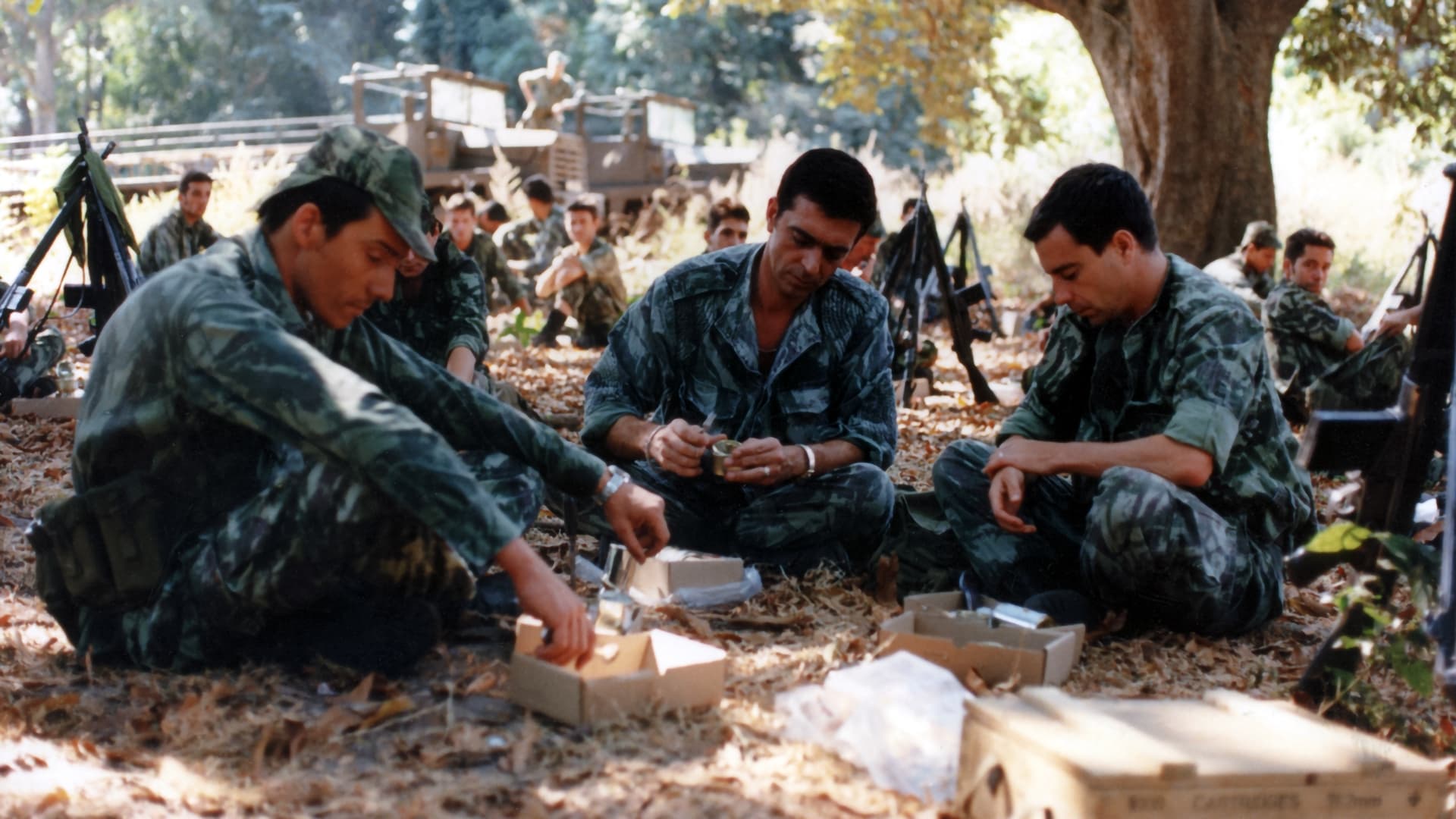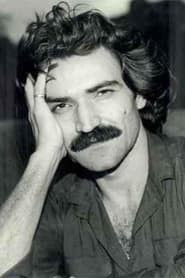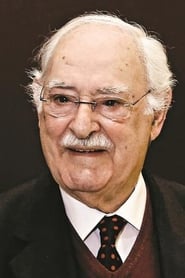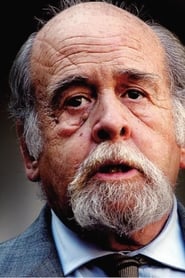Cast
View AllLuís Miguel Cintra
as 2nd Lt. Cabrita / Viriato / King John II of Portugal
Miguel Guilherme
as Pvt. Salvador / Lusitanian Warrior / Alcácer Warrior
Diogo Dória
as Pvt. Manuel / Lusitanian Warrior / Diogo (King John's Cousin)
Luís Lucas
as Cpl. Brito / Lusitanian Warrior / Alcácer Nobleman
Carlos Gomes
as Pvt. Pedro / Alcácer Warrior
António Sequeira Lopes
as Soldier / Lusitanian Warrior / Alcácer Warrior
Mateus Lorena
as King Sebastian of Portugal
Lola Forner
as Princess Dona Isabel
Raúl Fraire
as King Afonso I of Portugal
Ruy de Carvalho
as Preacher at Funeral / Suicidal Warrior
Teresa Menezes
as Venus
Leonor Silveira
as Tethys
Paulo Matos
as Radio Operator / Vasco da Gama
Francisco Baião
as Prince John
João Bénard da Costa
as Baron of Alvito
Crew
Director
- Manoel de Oliveira
Writer
- P. Joao Marques
Producer
- Paulo Branco
- Gerardo Herrero
Reviews
Filipe Manuel Neto
**One of Oliveira's best… but weak, fragile, boring and a little unpatriotic.**
I already had the opportunity to see, and review here, more than one film by Manoel de Oliveira, and after having seen this film, I keep my ideas. I have absolutely nothing against the director, I really appreciate his tenacity, his passion for cinematographic art, the way he devoted himself to cinema in a country that never saw in cinema anything but a "fait-diver", and that never led him to seriously or adequately supported it (lack of interest and support that does not apply only to cinema, but is something common to all cultural manifestations in Portugal). Oliveira would have been one of the greatest European filmmakers, one of the most appreciated and recognized, if he had not had the misfortune of being born in Portugal.
However, although I recognize Oliveira's intelligence, attentive eye, perfectionism, stubbornness and passion, this does not blind my discernment to another issue: his films are not commercially viable. As I have already said on other occasions, Portuguese filmmakers and directors tend to opt for unpalatable films, intellectual to the point of hermeticism, or cheesy, idiotic films, without any cultural value. And if some are the delight of festivals and that pseudo-intellectual bourgeoisie (mainly those who want to appear to understand cinema when in fact they know nothing about the subject), the others sell well, but are a national disgrace. We still haven't found that middle ground where art marries healthy entertainment.
Of all Oliveira's films I've seen, this one manages to be probably the least silly and the most enjoyable. Maybe because I'm a historian, and the film is essentially about the country's past and, mainly, the lost battles of history. Using these themes, Oliveira attempts an essay on the great military defeats suffered by the country, and the way in which this affected the course of the nation: the murder of Viriato (he was not Portuguese, not even in dreams, but is traditionally associated with Portuguese history), the Portuguese defeat at the Battle of Toro and the disastrous Battle of Alcácer-Quibir, not to mention the Colonial War, a fourteen-year conflict that Portugal won militarily until it was betrayed, in Lisbon, by the captains who wanted to make Portugal a Marxist-Leninist republic, on April 25, 1974. To say that it was all in vain, or that they were meaningless conflicts, would perhaps be the ultimate insult to those who died in these wars.
The film features several well-known actors, with Luís Miguel Cintra, Diogo Dória and Miguel Guilherme certainly being the best and those who develop the most interesting work. Both the scenes in the Overseas, and each of the historical recreations, are very well done, taking into account that, at the time of this film, we didn't have much practice with period reconstitutions. Cinematography is once again, as it happens in Oliveira's films, the filmmaker's signature feature, with impeccable framing, good camera work, the actors breaking the “fourth wall” (as if we were also part of the film). The worst part of this film turns out to be the mythological scene on Love Island. It just doesn't fit, plus a lot of the child nudity should have been cut. And the almost virtual absence of a soundtrack is also annoying (but not as annoying as the synthesizer that, in the mythological scenes, tried to emulate a piece of baroque music).
Jan 1, 2023
Thematic Analysis
As a dramatic work, No, or the Vain Glory of Command examines complex human relationships and emotional struggles against the backdrop of a period setting that reflects societal issues of its time. The character development particularly stands out, offering viewers a chance to reflect on their own life journeys.
Director Manoel de Oliveira brings their distinctive visual style to this film, continuing their exploration of themes seen in their previous works while adding new elements. Their approach to character development and emotional depth creates a viewing experience that rewards close attention.
Released in 1990, the film exists within a cultural context that now offers viewers historical perspective on the social issues of that era. Its reception demonstrates the diverse reactions to its artistic choices and its place in cinema history.
Did You Know?
- The production of No, or the Vain Glory of Command took approximately 12 months from pre-production to final cut.
- The final cut of the film runs for 107 minutes, though the director's initial assembly was reportedly 149 minutes long.
- The costume department created over 488 unique costume pieces for the production.
- The musical score contains over 36 unique compositions.
- The cast underwent specialized training for 5 weeks before filming began.
Historical Context
- In 1990, when this film was released:
- Digital technology was transforming the entertainment industry.
- The end of the Cold War was reshaping global politics.
- Independent cinema was growing in influence, challenging the dominance of major studios.
How This Film Stands Out
While No, or the Vain Glory of Command shares thematic elements with other films in its genre, it distinguishes itself through its unique approach to storytelling, visual style, and character development.
Unlike The Last of the Mohicans, which takes a more conventional approach to its subject matter, No, or the Vain Glory of Command offers a fresh perspective through its innovative visual language and narrative structure.
While films like Glory and The Jacket explore similar territory, No, or the Vain Glory of Command stands apart through its deeper exploration of its central themes and more complex characterization.
This film's unique contribution to cinema lies in its bold artistic choices and willingness to challenge viewer expectations, making it a valuable addition to its genre.
Details
- Release Date: October 12, 1990
- Runtime: 1h 47m

















